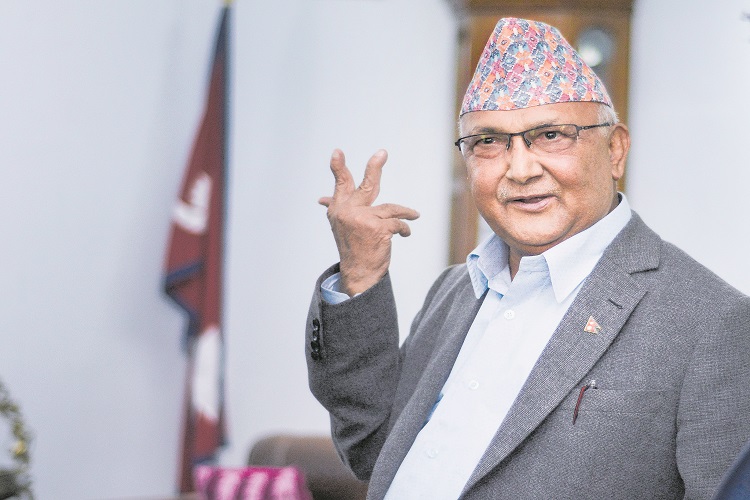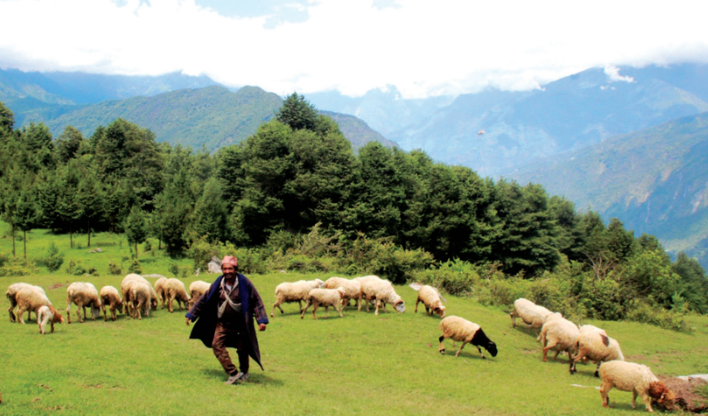latest News
Battling the ravages of Lantana Camara in Nepal
Invasive species are non-native species that spread or expand their range, potentially harming the aspects of the environment including the ecosystem and human health. They are one of the five major threats to the biodiversity in Nepal. Lantana Camara is one of such invasive species, which needs to be seriously researched and managed to keep the implication of the species to biodiv…
38 minutes ago
Third Investment Summit: Two organizations sign MoU for PPP cooperation
The World Association of PPP Units and Professionals (WAPP) and the Nepalese Association of PPP Professionals and Practitioners (NAPPP) have signed a Memorandum of Understanding (MoU) for bilateral cooperation.
1 hours ago
Gold price drops by Rs 400 per tola on Monday
The price of gold has dropped by Rs 400 per tola in the domestic market on Monday. According to the Federation of Nepal Gold and Silver Dealers’ Association, the yellow metal is being traded at Rs 137, 200 per tola today. It was traded at Rs 137, 600 per tola on Sunday. Similarly, tejabi gold is being traded at Rs 136, 550 per tola. It was traded at Rs 136, 950 per tola. Meanwhile,…
UML’s Nembang leading vote count in Ilam-2
CPN-UML candidate Suhang Nembang is leading the vote count in Ilam-2. Of the 24, 738 votes counted so far, Nembang has secured 10, 300 votes. Similarly, his closest contender Nepali Congress candidate Dambar Bahadur Khadka has received 6, 944 votes. Likewise, independent candidate Dekendra Singh Limbu Thegim obtained 5, 591 votes while Milan Kumar Yonghang Limbu of Rastriya Swatantra Par…
Bajhang by-election: Congress candidate Singh ahead by 264 votes
Vote count is underway in Bajhang Constituency 1, Province Assembly (a). As per the latest update, Nepali Congress (NC) candidate Abhishek Bahadur Singh is leading the vote count by 264 votes. He has obtained 7,492 votes while his close contender CPN-UML's Daman Bahadur Bhandari got 7,228, informed Chief Returning Officer Sudarshan Lamichhane. Likewise, CPN (Maoist Center) candidate …
Ilam by-election: UML's Nembang continues to lead in vote count
Vote count of the by-election held in Ilam constituency-2 is underway. CPN-UML candidate Suhang Nembang is leading in the vote count. According to the latest update, Nembang has secured 8,898 votes. Similarly, Nepali Congress candidate Dambar Bahadur Khadka has received 6,280 votes. Similarly, Independent candidate Dekendra Singh Limbu Thegim obtained 4, 634 votes while Milan Kumar Yonghan…
Nepal’s Media fraternity battles disinformation
Nepal’s media fraternity has expressed concerns regarding a surge in fake news directed at independent media outlets that have been uncovering corruption and governance failures. They say these fake news represent a deliberate and systematic campaign to undermine the credibility of independent press and misguide the general public. Such nefarious efforts extend beyond the media. Th…
Impact of climate change on the ground
We often think of climate change in terms of floodings, landslides, erratic rain patterns and their immediate after-effects, the devastations that these phenomena are causing among local populations. Less attention is given on longer term consequences of climate warming. A recent report, a joint initiative of UNESCAP, UNDP and ADB, is offering a very sober reminder of the impacts of changed climate patterns in the agricultural sector, showing how hard local communities in the Asia-Pacific are hit. The 2024 ESCAP-ADB-UNDP SDG Partnership Report, titled “People and Planet: Addressing the Interlinked Challenges of Climate Change, Poverty”, is a detailed analysis on the causes and effects of climate change in the livelihoods of millions of people living in rural areas. Linking climate with strengthened agriculture and sustainable food production and doing a much better job at the “integration of food systems and food security into disaster risk reduction”, are keys not only to enhance people’s adaptability to the changes forced on them by a warmer, more polluted planet. It is also instrumental to overcome poverty and zero hunger, two foundational aspects of the Agenda 2030. As the name of the report suggests, the changes needed all come down to having partnerships and collaborations but it also about institutional collaborations and stronger forms of governance. Recently, news circulated that an expert dialogue on “Mountain, People and Climate” will be held in Kathmandu from May 22 to 23. Per the report, the initiative will be led by the Ministry of Forest and Environment with the focus on promoting new partnerships and collaborations. It is also aimed, according to Maheshwor Dhakal, joint secretary at MoFE, at “allowing the governments, stakeholders in mountain countries, to better understand mountain climate concerns and solutions, share expertise and experiences, and enable synergies”. This is what we need. The challenges are so huge and solutions are available but complex and require novel thinking. In short, a new approach is needed. The partnership report identifies areas of action like sustainable agricultural practices, grassroots entrepreneurship and nature-based solutions in creating jobs at local level. In practice, it highlights how “critical (it) is to ensure that new employment generated from transitioning to a economy is green and decent, supporting a just transition and contributing to poverty and hunger alleviation”. Together with social protection schemes, effective as cushions but extremely expensive and difficult to design, the entire Asia-Pacific region has the expertise and capacities. There are also plenty of best practices on how local villages proactively engage in climate adaptive solutions because, essentially, locals often hold the key to effective actions. They might not be clamorous but they can make the difference as when farmers adopt more and better organic practices or when they embrace the opportunities of renewable sources of power. But each of these solutions face complex dynamics in their implementation. On the one hand, it is also about financial resources and expertise and guidance. On the other, it is really about innovating in the way decisions are made. That’s why the expert dialogue next month is going to be paramount but, at the same time, it’s also important to set some expectations. First and foremost, it should not be just a “one-off” initiative. The event instead should lead to a roadmap of more consultations and not only among experts. While it remains crucial to have dialogues among experts and on this aspect, such platforms should be linked with existing (at least on the paper) consultative mechanisms that the Federal Government has already established even if rarely activated in a substantial way. For example, bodies like the Climate Change Council and Climate Change Coordination Committee must be not only re-activated but re-booted and re-designed as truly consultative bodies, institutions that take engaging and involving non state actors seriously. But even a much stronger coordination among civil servants and experts from the civil society and private sector won’t suffice. What is required is a level of discussions that not only trickle down to the grassroots. Certainly, it would help to extend conversation on climate mitigation and adaptations to the local levels, extending the scope of debate. A brilliant research paper by Prakriti Resource Center, published in 2019, offers a four-pillar framework to localize climate action in Nepal. Within this approach, the research identifies policy level coordination and coherence are paramount and underlines how traditional top-down measures are bottlenecks to localize climate mitigation and adaptation. The challenges are so daunting in Nepal and elsewhere in the region. In the specific case of Nepal, local governments are neither consulted nor involved enough and this is a finding corroborated also by the work done by the researchers at the above-mentioned center. We really need a fresh re-start and seriously, think what and how localizing climate action can work and be effective. Going beyond the jargon, moreover, when we talk about coordination, how should it unfold? How can we ensure that coordination does not only entail policy and legislation centered-discussions but rather coordination that, to start with, should involve and engage local people. Not many fully understand that the Agenda 2030 and its SDGs offer a great opportunity at empowering citizens by enabling them to be part of the decision-making. Ensuring wide, open and transparent consultation across all the levels of the multi-governance system that Nepal is creating would be, in a sense, a first milestone toward real participation that is based on people being able to deliberate. Deploying more sustainable agriculture practices, creating conditions for establishing resilient job markets in rural areas especially by having more women in economically productive roles and having better education and skills development systems, is not just a matter of expertise, policy and money. It is also a matter of allowing people to be part of the conversation and possibly have a real, meaningful agency, a voice to decide. In a recent event organized by the Institute for Strategic and Socio-Economic Research on April 16, Prime Minister Pushpa Kamal Dahal spoke of the centrality of good governance. “Engaging citizens in decision making fosters transparency and accountability, which are essential pillars of good governance” he said. “It is crucial to adapt governance mechanisms to mitigate environmental risks” the PM added. He talked about government’s efforts to include and involve people. According to the Partnership 2024 Report, one of the key enablers for successfully winning the challenges of climate warming in the rural areas of the whole Asia-Pacific, harnessing the power of local agricultural practices and ensuring food security across the board is “institutional capacity building”. It is explained as “developing the capacity of institutions for climate-risk assessment and governance is vital for effective public decision-making at all levels”. “Effective policymaking requires coordination across different levels of government and must include all relevant stakeholders, including the private sector, civil society organizations, financial institutions and international organizations”, the report elaborates. The publication also emphasizes how an ADB project, the Community Resilience Partnership Program (CRPP), is trying to “increase the participation of women in decision-making processes which in turn leads to more effective and inclusive resilience strategies”. But how viable on the long term such kind of financial support is going to be? What about local ownership? A proposal: Can we, finally, let the people decide what all these jargons mean in practice in the fight against climate warming? Can Nepal truly empower its citizens in a bottom-up form of federalism that is truly inclusive and transformative? Moreover, it is really high time that PM Dahal started backing up his visionary rhetoric with real ground-breaking governance actions. Perhaps a policy and experts dialogue to be held next month in Kathmandu could start paving the way for these answers to be addressed by those who should really be in charge, the citizens.
Nepal and Indian elections
India, the world's largest democracy, is busy holding the 18th Lok Sabha elections which will conclude on June 1. The global community is closely watching the outcomes of these elections. With its burgeoning population having surpassed China's, India is on track to claim the mantle of the world's third-largest economy by 2030. As a key player in the Indo-Pacific region and a torchbearer for the Global South, India's policies, both domestic and foreign, resonate far beyond its borders. The significance of India's elections reverberates throughout the region. While there are widespread projections that the ruling Bharatiya Janata Party (BJP) will win a third consecutive term, with Prime Minister Narendra Modi continuing in office, opposition parties are expected to strengthen their position compared to the 2019 elections. The election outcomes in India are of particular significance for South Asian nations including Nepal, where India wields deep political, economic and military influence. In 2014, upon assuming power with a resounding victory, Prime Minister Narendra Modi reinvigorated the 'Neighborhood First' policy, although he failed to achieve the expected outcomes. To demonstrate the BJP government's priority for neighbors, he invited the heads of state and government from South Asian countries to attend his swearing-in ceremony. When re-elected in 2019, Modi continued the 'Neighborhood First' policy by inviting BIMSTEC (Bay of Bengal Initiative for Multi-Pectoral Technical and Economic Cooperation) member countries to his swearing-in ceremony. If re-elected for a third term, the BJP government is likely to maintain the 'Neighborhood First' policy, although India has been focusing more on regions beyond South Asia in recent years. Despite occasional highs and lows, the trajectory of Nepal-India relations points toward a positive outlook, poised to weather the complexities of shared history and future aspirations. Over the past decade, under Modi's leadership, Nepal-India relations have witnessed many highs and lows. However, the relationship is moving in a positive direction, which should continue even after the elections. Crucial issues such as the 1950 Peace and Friendship Treaty and boundary disputes remain on the diplomatic agenda, albeit the two countries approach them with varying degrees of emphasis. Nevertheless, the two neighbors recognize the imperative of fostering trust and stability to navigate these challenges successfully. A notable shift in India's approach to the internal affairs of its neighbors signals a promising era of cooperation built on mutual respect and understanding. The BJP government has changed its approach on how to view the internal political affairs of South Asian countries which has helped to build an environment trust. One encouraging signal is that economic collaboration has emerged as a cornerstone of bilateral relations, with a growing focus on development partnerships and infrastructure projects. Despite changes in political leadership, the momentum in bilateral engagements remains steady, underpinning a commitment to sustained progress and prosperity. Over the past three decades, India has faced charges of not completing development projects for extended periods. However, several bilateral projects are now making progress, ultimately helping to build an environment of trust. Recent visits by Nepali leaders to New Delhi and Indian leaders to Kathmandu have focused on enhancing economic and development partnerships. The energy cooperation agreement between Nepal and India has paved the way for regional energy cooperation, with Nepal positioned as a clean energy provider to the region. As India's economy continues to rise and rise, and major multinational companies shift their industries to India, Nepal, which shares an open border, should get the opportunities. India could become a destination not only for unskilled Nepali workforce but also for highly skilled professionals in sectors such as education, health, IT, banking, and others, which have not received much discussion. Both Nepal and India should seriously consider these issues and clearly outline their plans to derive economic benefits from India's rising economy. These matters should be taken seriously regardless of which party comes to power. Amid robust economic collaboration between two countries, over the past few years, Nepal is witnessing a debate about the growing ideological influence of BJP in Nepal. In recent years, there has been a perception among Nepali leaders and the public that the BJP and its affiliates are pushing for a Hindu agenda in Nepal. It is often said that they are suggesting (sometimes pressuring) Nepali leaders to scrap secularism and go for the Hindu state. There are also reports that various organizations linked with the BJP are active in Nepal with their Hindu agenda. While Nepal's top leaders are aware of those issues, they have not spoken publicly. However, they want to discuss those issues with Indian leaders. BJP leaders should be mindful that such efforts could again strain the bilateral relationship, which has reached a new level after sustained efforts from both sides. It would be worthwhile to recall India's approach to the demands of Madhes-based parties, mainly after 2017, which helped enhance the bilateral relations. Many Nepali politicians and analysts view the growing activities of Hindu organizations as an attempt to overturn the 2015 constitution. This suspicion among Nepali politicians obviously does not help enhance the bilateral relationship. There should be frank and open discussions between the two sides, not only on these issues but also on other issues of mutual concern. India's relationship with global powers also affects its South Asia policy. The India-US strategic partnership is likely to be enhanced, but there are divergent views on several bilateral and global issues, including the Russia-Ukraine war. The India-China relationship is unlikely to improve for at least the next few years. As I have highlighted in my previous columns, Nepal's approach should be not to engage in the big-power rivalry but to focus on economic development. The future of Nepal-India relations hinges not on fleeting political interests but on a shared commitment to long-term prosperity and mutual respect. By prioritizing economic and developmental collaboration, both nations can chart a course toward a brighter, more interconnected future.
Waste management in rural tourism
Recent research has brought attention to a concerning trend in waste studies in Nepal: a strong emphasis on urban areas while rural regions are often overlooked. The researchers note that traditionally, rural communities managed waste according to local customs and economic factors. However, with changing lifestyles and an uptick in tourism, waste management in rural areas has become increasingly complex. The research also warns that ineffective waste management practices in rural settings could worsen environmental problems. Every year, Nepal now welcomes over a million tourists, establishing itself as a thriving destination for travelers worldwide. Tourism benefits Nepal by driving economic growth, creating jobs, promoting cultural exchange, and supporting the preservation of its rich heritage. Conversely, tourism in Nepal also presents challenges such as increased solid waste generation, as evidenced by studies conducted in countries like China, India, and Ukraine. Now it’s not just the Nepalese cities facing solid waste management challenges anymore; rural areas are grappling with them too, especially in regions that are densely populated and popular tourist destinations. Recent studies by Adhikari and colleagues have shown a worrying increase in waste generation per person, especially in places where connectivity is improving, living standards are rising, and people’s consumption habits are changing. The lack of proper waste management facilities only adds to the problem, along with issues like local governments not fully committing to tackling the issue and inefficient decision-making processes. So, there’s a clear need for a detailed investigation into solid waste management problems in rural areas to find effective solutions. Ghandruk, lying within the Annapurna Rural Municipality, stands as a beacon for tourists due to its breathtaking Himalayan vistas, diverse cultural heritage, and renowned hiking trails, notably along the path to Annapurna Base Camp. Department of Immigration data reveals that out of 83,568 foreign trekkers in Nepal in 2015, a staggering 78,926 chose to explore the Annapurna Conservation Area, highlighting the economic importance of tourism to Ghandruk. While tourism has undoubtedly brought economic benefits to Ghandruk, contributing significantly to its social, economic, and environmental landscape, there are notable drawbacks, particularly concerning solid waste management. Mass tourism has aggravated the fragility of the mountain environment, leading to instances of environmental degradation, including the accumulation of solid waste. This issue is particularly pressing in rural tourist areas like Ghandruk, where inadequate waste management infrastructure and practices pose significant challenges to environmental sustainability and eco-tourism. The recent research, titled “Solid Waste Management in Rural Touristic Areas in the Himalayas—A Case Study of Ghandruk, Nepal,” published in Habitat International in Jan 2024, aimed to highlight the gap in waste management studies. It conducted the first-ever waste characterization and analysis of existing solid waste management (SWM) practices in the rural tourist village of Ghandruk, situated in western Nepal. The research studied 64 households and 15 commercial sectors (hotels and restaurants). Waste from each household and commercial sector was examined over two days to quantify waste generation, with methodologies adapted from previous studies. Semi-structured questionnaire surveys, key informant interviews (KIIs), and focus group discussions (FGDs) were utilized to gather qualitative data on household characteristics, waste management practices, awareness of waste management issues, and satisfaction levels. Geographic information system (GIS) software was used for mapping, while descriptive statistics and statistical software were employed for data analysis. What did the researchers find? Households in Ghandruk produce 21.3 grams of solid waste per capita per day, while commercial sectors generate 240 g per capita per day. The composition of solid waste in both households and commercial sectors was analyzed, with organic waste found to be the most dominant component. Waste management practices in Ghandruk were examined, revealing a combination of household segregation, collection, and disposal methods. Efforts by local authorities, including the establishment of collection centers and restrictions on plastic bottle sales, aimed to mitigate waste generation and promote recycling. Local residents expressed varied perceptions of existing waste management practices, with younger respondents showing greater concern for environmental impacts and older participants focusing on health hazards. Collaboration between the Annapurna Conservation Area Project (ACAP) and local communities aimed to educate residents and improve waste management practices. The findings of the study highlighted the need for a more holistic approach to waste management. While organic waste remained dominant, there was a notable increase in recyclables like glass and plastics, indicating a shift in waste characteristics not unique to Ghandruk but possibly reflective of trends in rural tourist areas worldwide. The daily per capita waste generation of 261.3 grams revealed by the study challenges the notion that rural areas produce negligible amounts of solid waste. This highlights the critical need to address waste management concerns in these regions, especially with the burgeoning growth of tourism. Despite commendable waste segregation efforts, the study identified challenges such as unreliable waste collection and transfer mechanisms, posing potential hurdles in the future. Moreover, concerns regarding the handling of non-recyclable waste and frequent open burning call for systematic solutions to mitigate environmental consequences. The implications of this research extend beyond Nepal, offering valuable insights for policymakers, operators, and regulators grappling with SWM issues in rural tourist areas globally. Recommendations include the implementation of multimodal SWM plans in collaboration with local stakeholders, including households, and incentivizing community involvement through collection fees and deposit-refund systems. In light of Nepal’s new federal government structure, the study advocates for proactive measures at the provincial and local levels to address emerging SWM challenges effectively. By prioritizing sustainable waste management practices, rural and mountainous regions can preserve their natural beauty while accommodating the needs of growing tourism industries
IT Bill requires a serious revision
The Information Technology (IT) and Cybersecurity Bill, published on 10 March 2024 for public feedback, is currently under review by MOCIT (Ministry of Communication and Information Technology). Aimed at addressing digital signatures, cloud computing, cybercrime and major digitalization of public services, including the creation of websites for all government agencies, establishment of a national cybersecurity center, and forensic center, it represents Nepal’s stride toward implementing robust IT and cybersecurity regulations. Nepal aims to implement these regulations to tackle the rising tide of crime due to fast digitization in the country. However, certain aspects of the bill, particularly concerning cloud computing and data centers, raise concerns. The requirement for companies to obtain licensing approval and undergo yearly renewal, while perhaps well-intentioned, may not foster innovation and economic growth effectively. Considering the substantial investment required for data centers and cloud computing infrastructure, businesses should ideally focus on their core operations without undue bureaucratic hurdles. If we see international practice, especially the EU and the USA do not mandate specific licensing requirements for data centers or cloud service providers at the national level. Instead, companies are regulated by industry standards and market competition, while compliance with relevant regulations ensures legal operation and maintains customer trust. If we examine India's approach to supporting businesses through its policies, we find that it employs various strategies that aid in fostering businesses from their inception. These strategies include ensuring that all approvals required for commencing business are granted within 15 working days, offering 100 percent exemption from property tax for 10 years, and providing subsidies such as Capital Investment Subsidy, Lease Rental Subsidy and Interest Subsidy. Several other provisions within the bill could have significant impacts on businesses. For example, the requirement for companies operating critical infrastructure to submit design and configuration documents to government bodies raises concerns regarding potential violations of intellectual property rights. Here, the bill fails to address the issue of compensating businesses for damages resulting from intellectual property theft. In cases of intellectual property theft, only minimal punishment and fines need to be paid to the government, with no compensation provided to the intellectual property owner. This omission could leave affected companies vulnerable to substantial financial losses without any possibility of recovery. Also, instead of imposing permits for importing and distribution of IT equipment from government bodies, the government could have mentioned the establishment of minimum standards, allowing the import of equipment meeting or exceeding these standards without approval. The requirement for data storage within Nepal's borders for financial and health organizations may pose feasibility challenges, especially during the period when the government is aggressively promoting cross-border financial practices. In the case of data collected by private organizations, it may be more practical to allow them to store their data in public clouds, with the condition that they are responsible for ensuring the security of their information. The level of security required should be determined based on the sensitivity of the data being stored, with varying levels of security measures such as encryption being implemented accordingly. Several provisions within the bill raise concerns for individuals as well. For example, the provision allowing the storage and use of sexual material for educational or medical purposes could potentially be misused. Stringent cybersecurity measures must be applied to the machines storing such material. If the material is leaked or hacked due to inadequate security measures, the entity responsible for storing it should be held accountable, and appropriate punishment should be enforced. The definition of criminal activity outlined in the bill is quite vague in many places, raising significant privacy concerns. Under this definition, the government could demand the submission of personal private keys. Additionally, provisions allowing investigating officers, such as police inspectors, to collect electronic devices and traffic data without proper oversight could be prone to misuse. It is recommended that higher-ranking officials, like SSPs or DIGs, oversee such activities to ensure accountability and prevent potential misuse. The meeting of the National Cybersecurity Committee that is mentioned in this bill itself does not validate the live video link or any other electronic means of communication or online meetings for any meeting of the committee, where physical presence is mandatory. The government is trying to address emerging technologies like AI and blockchain, with few definitions for proper use but these technologies will require further study and regulations going forward. While the IT and Cybersecurity Bill represents a significant step toward bolstering Nepal's digital infrastructure, careful consideration and amendments are necessary to address concerns and ensure the bill aligns with business-friendly practices and privacy rights. As technology is rapidly changing, it becomes imperative that the laws are modified at the same pace, something which was lacking in the past. The author is a cybersecurity professional and student of information management. Views are personal
Make Nepal a land of truth
People create laws and constitutions for themselves, then execute, implement and follow these laws as part of their civic duty. This process is common across the globe. The only times when individuals are exempt from following the law are at birth and at death. Otherwise, throughout their lives, people must abide by the law to maintain order and be seen as living a disciplined life. As social creatures, humans naturally form communities and live among others. This need for social connection underscores the importance of fostering brotherhood and maintaining cordial relationships with one another. It’s through these positive interactions that harmony is created and sustained in society. In today’s society, however, it’s apparent that many people, politicians and political parties often do not follow the rules and laws they are supposed to uphold. This lack of adherence to the rule of law has led to a breakdown in social harmony and an environment where breaches of legal and ethical standards are common. The authorities frequently enjoy absolute impunity for violating both political and economic rights, undermining the principle of justice that should be central to governance. This disregard for the rule of law has contributed to growing social and religious conflicts. When those in power are not held accountable, it creates an atmosphere of mistrust and division among the people. Without a consistent enforcement of the law, the development and stability of society and the country are at risk. To move forward, it’s crucial that laws are respected and applied evenly, without favoritism or corruption, ensuring that everyone is subject to the same legal standards. This is the only way to rebuild trust, promote social harmony and foster sustainable development. To address these issues, laws are needed to combat false accusations, rumors and hate speech. While Nepal has laws and regulations in place for these matters, they are not sufficiently strict, allowing people and political leaders to engage in character assassination with impunity. Lawmakers in parliament must set an example through their conduct and language, presenting their opinions with discipline and respect. Since they represent the people of an entire nation, they should model behavior that is appropriate and considerate. It’s crucial to define the acceptable boundaries and types of language used when criticizing others. Even when someone is guilty of wrongdoing, there are other ways to hold them accountable without resorting to hate speech or personal attacks. The same applies for the bureaucrats. Stronger enforcement of existing laws and the establishment of clear guidelines on acceptable discourse in public forums can help prevent the spread of harmful rhetoric and promote a more respectful and constructive political environment. Hate speech should never be tolerated, and strict measures must be taken to discourage and penalize those who engage in it. The behavior and speech patterns of a country’s people reflect the nation’s culture and level of civilization. If we neglect to address these aspects, how can we cultivate a healthy culture and civilization? This disregard for cultural development will prevent the country from progressing in a positive direction. Currently, the nation is engulfed in confusion because we struggle to discern who is telling the truth and who isn’t. Even those we consider our protectors and leaders often fail to be truthful, creating further uncertainty. To address this issue, we need laws that promote honesty and respect for others. Anyone who spreads falsehoods or incites hate should face consequences, regardless of their position. This should apply universally, whether the individual is an ordinary citizen, a politician, a bureaucrat, or even a judge. If someone engages in spreading misinformation or hatred, they must be held accountable and face appropriate punishment. In addition, it’s crucial to scrutinize the integrity of lawyers as they present their cases in court. Legal professionals should be held accountable for the accuracy of the facts they submit during trials. This ensures that justice is based on truth and prevents manipulation or distortion of evidence. Furthermore, court verdicts should also undergo rigorous examination to ensure that decisions are fair, unbiased and founded on accurate information. Every part of the judicial process must be rooted in honesty to maintain public trust in the legal system. Ultimately, the commitment to truth should extend across all areas of society. No matter who you are or what role you play, practicing honesty and promoting integrity are essential for building a just and ethical community. The media plays a pivotal role in disseminating information, which means it must be held to high standards of accuracy and responsibility. Given that misinformation and disinformation are significant threats on a global scale, media organizations must be checked to ensure they are not contributing to these problems. Nepal should strive to become a land where truth is valued and upheld in all aspects of society. The author is a member of the Supreme Court Bar and has been practicing corporate law for around three decades
Populism and Nepal’s democracy
Following the recent general elections, minor political parties entered the arena with the aim of securing a role in governance, capitalizing on the current electoral framework where no single party can secure a parliamentary majority. Despite initial anticipation of an ideological shift when the Maoist party engaged in the peace process and formed an alliance with the CPN-UML, the coalition fell short of such expectations. Nepali politics is viewed by analysts as being at a critical juncture due to governmental instability, rampant corruption and policy dilemmas. While Nepali people hoped for a lean and efficient administration under democracy, political entities in Nepal failed to deliver on this promise. Instead, the existing governmental structure appeared more bureaucratic and financially burdensome to Nepali taxpayers. Nepal witnessed one of its weakest coalition governments in recent memory, with governing partnerships shifting thrice within a year, reminiscent of past ruthless practices and corrupt leadership. Even purportedly new political entities became entangled, directly or indirectly, in this murky landscape. Nepali people must understand that a new political party does not inherently equate to moral or ethical integrity. Without ethical leadership, genuine renewal cannot occur. The proliferation of new political parties poses a challenge to Nepal’s democracy and the establishment of a stable governance framework. Hence, analysts must scrutinize emerging trends, including the involvement of Rastriya Swatantra Party (RSP) in Nepal’s current government. Analysts assert that RSP emerged from popular sentiments and crowd-driven notions rather than a coherent political ideology. When a political entity originates from populism, it may lack a clear political agenda, principles and policies. Parties’ lack of principles can undermine democracy, as voters may struggle to access accurate information to make informed choices. Furthermore, in the absence of political principles, a party risks becoming the personal domain of its leader, sidelining the interests and agendas of others. Populist ideas have the potential to conceal decision-making processes and mislead the public. Without a solid political ideology, populist agendas may clash with the nation's established plans and policies, resulting in misguided policy decisions. Populist leaders often adhere strictly to their scripted agendas, sidelining other parties from meaningful discussions. Under CPN (Maoist Center) Chair Pushpa Kamal Dahal-led ruling alliance, RSP has emerged as a significant political force, bearing substantial responsibility and accountability to the Nepali people. However, numerous uncertainties linger regarding the RSP and its leadership. Establishing a political party necessitates several key components: a clear political ideology, organizational structure, committed party members and integrity. Regrettably, RSP lacks all four elements. A robust political ideology serves as the cornerstone of a democratic political party, providing the framework for policy formulation. The absence of such an ideology and principles has downgraded RSP to a populist entity born from popular sentiment rather than sound political doctrine. In a democracy, people reserve the right to inspect their political leaders, and governments and political parties must remain answerable to the people. However, RSP has been quick to silence dissent and avoid pertinent inquiries, raising concerns about its commitment to transparency and accountability. RSP lacks a robust political infrastructure, functioning more as a non-profit organization where social activists deflect blame onto others without assuming responsibility themselves. Examination of their core leadership reveals a predominance of individuals from elite backgrounds or higher economic layers, primarily residing in urban centers. RSP primarily focuses its activities on urban politics, capitalizing on the ability to amass crowds. The party’s president, Rabi Lamichhane, signals from a media background, using his platform to criticize the government and spread misinformation rather than addressing genuine issues. Lamichhane has adopted a quasi-superhero persona, presenting himself as capable of resolving all challenges through seemingly magical means. Despite his involvement in numerous controversies and disputes within Nepali media and politics, no conclusive resolution has been reached under legal frameworks. Major political parties have exploited Lamichhane for their gains, not bothering to address controversies surrounding him. Nepal’s major political parties have diligently instructed their members on political ideology and beliefs, yet RSP has faltered in establishing a coherent political ideology and grassroots organization. Instead, RSP relies on amassing followers from the masses without implementing any effective control mechanism. It’s common knowledge that unguided crowds can turn toward chaos and pose a threat to democracy by disregarding laws and regulations. Therefore, RSP must evolve into a responsible democratic political entity, addressing unanswered questions and being accountable to the public. The rise of populism and crowd-driven politics worldwide over the past decade, exemplified by movements like the Mega Republicans in America and radical Hindu nationalists in India, poses a significant risk to democratic institutions and norms. Any embrace of nationalist radicalism could jeopardize Nepal’s overall development and its democratic foundation. Integrity stands as a crucial pillar for the advancement of democracy. Unfortunately, all political parties in Nepal have fallen short of maintaining integrity to some extent, leading to results of large-scale corruption and conflicts of interest. Despite positioning itself as a viable political alternative, RSP cannot afford to emulate the shortcomings of established parties. Instead, it must exemplify honesty, moral integrity and ethical standards. Regrettably, RSP’s president, Lamichhane, has repeatedly failed to demonstrate honesty and ethical conduct, particularly in relation to an illegal passport case and a cooperative fraud. Moreover, his selection of ministries directly linked to these controversies highlights a clear conflict of interest, further underscoring his lack of integrity. Various incidents involving RSP leaders in controversial situations have been concealed by the party, weakening trust among the people and worsening damage to Nepal’s democratic fabric. When those claiming to offer an alternative view regard themselves as above scrutiny and disregard pertinent questions, public trust is undermined, leading to further harm to Nepal’s democracy. The prevailing challenges to democracy around the world encompass populism, crowd-centric politics and leaders who undermine established institutions while advocating against traditional governance. Populist figures prioritize personal interests and political gains, deflecting blame onto others for every issue. In the Nepali context, most populist leaders prioritize attaining power rather than fostering long-term economic agendas and developmental strategies. The surge of crowd-centric politics stems from the failures of conventional political parties, which have either failed to address or neglected the people’s priorities. Regardless of the underlying reasons, populism presents a significant danger to democracy and governance, underscoring the importance of responsible political entities and leadership dedicated to nurturing liberal democratic values and fostering trust within society. Crowd-centric organizations can’t serve as a sustainable solution for Nepal’s long-term development. Instead, there is an urgent need to establish a streamlined government alongside an effective electoral system. The opinions expressed in this article are the author's sole responsibility and do not reflect the views of any organization with which the author is professionally affiliated
Bajhang by-election: Congress candidate Singh ahead by 264 votes
Vote count is underway in Bajhang Constituency 1, Province Assembly (a). As per the latest update, Nepali Congress (NC) candidate Abhishek Bahadur…
Ilam by-election: UML's Nembang continues to lead in vote count
Vote count of the by-election held in Ilam constituency-2 is underway. CPN-UML candidate Suhang Nembang is leading in the vote count. Accordin…
Nepal is an attractive destination for international investment: Finance Minister
Finance Minister Barshaman Pun has asserted that Nepal is an attractive destination for international investment. Addressing the inaugural session…
President issues ordinance related to facilitation of investment
President Ram Chandra Paudel has issued the Ordinance Amending Some Nepal Acts Related to Investment Facilitation, 2081. The President issued the …
Harry Bhandari: An inspiring tale of Nepali immigrant in the US
Quick facts Born on 1 Oct 1977 in Parbat Went to Tribhuvan Secondary School, Parbat Graduated in PN Campus, Pokhara; post-grad in English literature from Tribhuvan University First elected to the Maryland House of Delegates in 2018 and has been a member of the House since Jan 2019 PhD from the University of Maryland, Baltimore County (UMBC) Husband to Sangita Baruwal Father to Ronix Bhandari and Salona Bhandari I began my early education at a public school establishe…
7 months ago
Baburam Bhattarai: An analysis on Nepal’s underdevelopment
Quick facts Born on 18 June 1954 in Gorkha Went to Amarjyoti Janata High School, Gorkha Graduated from Punjab University, Chandigarh, Post-grad from School of Planning and Architecture, New Delhi PhD in Regional development planning from Jawaharlal Nehru University Published doctoral thesis ‘The Nature of Underdevelopment and Regional Structure of Nepal: A Marxist Analysis’ in 2003 Husband of Hisila Yami Father to Manushi Yami Bhattarai I went to India in…
7 months ago
Sunil Babu Pant: A guardian of LGBTIQA+ community
Quick facts Born on June 1972 in Gorkha Went to Laxmi Secondary School, Gorkha Graduated in Computer Science from Ukraine and Belarus Became the member of first constituent assembly in 2008 Partner to Peter Neil I saw the oppression of gay men during my time in Minsk, Belarus, where I was studying for my master’s degree in computer science. The queer bashing, the poster…
Usha Nepal: An inspiration to every working woman
Quick facts Born in Mahottari, Nepal Went to Balika Secondary School, Biratnagar Received a Bachelor’s in Arts from Banaras Hindu University, India Received a Master’s degree through Colombo Plan Scholarship in Patna, India Studies Law from Tribhuvan University, Kathmandu Became the first female CDO in 1989 Being the first female Chief District Officer (CDO), whi…
Anupama Khunjeli: A trailblazer banker
Quick facts Born on 14 Nov 1970 in Kathmandu Went to St Mary’s High School, Lalitpur Graduated from Shanker Dev Campus; post-grad from Ace Institute of Management Joined banking sector in 1991 as a teller Wife of Dr Rabindra Khunjeli Mother to Swastika Khunjeli I have always had a competitive streak in me. I was into sports from a young age and I wanted to be an ath…
Capt Siddartha Jang Gurung: Aviation rescue specialist
Quick facts Born on 20 April 1975 in Lalitpur Went to Alperton High School, London, UK Completed flight course from Florida Flight Academy, US Started rescue flights from 1995 Husband of Sraddha Gurung Father to Devanshi Gurung and Shlok Jung Gurung I have been flying helicopters for 27 years now, and have a long experience of flying in the mountainous terrain of Nepal…
Bhuwan Chand: Born to perform
Quick facts Born on 14 June 1949, Kathmandu Went to Ratna Rajyalaxmi Campus, Pradashani Marg, Kathmandu Took a leading role in the first Nepali feature film ‘Aama’ in 1964 Wife to Michael Chand Mother to Sheela Chand, Sheetal Chand, and Shirush Chand I started my career in acting when I was merely four-five years old. Back then, we had no such thing as film acting. Nepal s…






















































































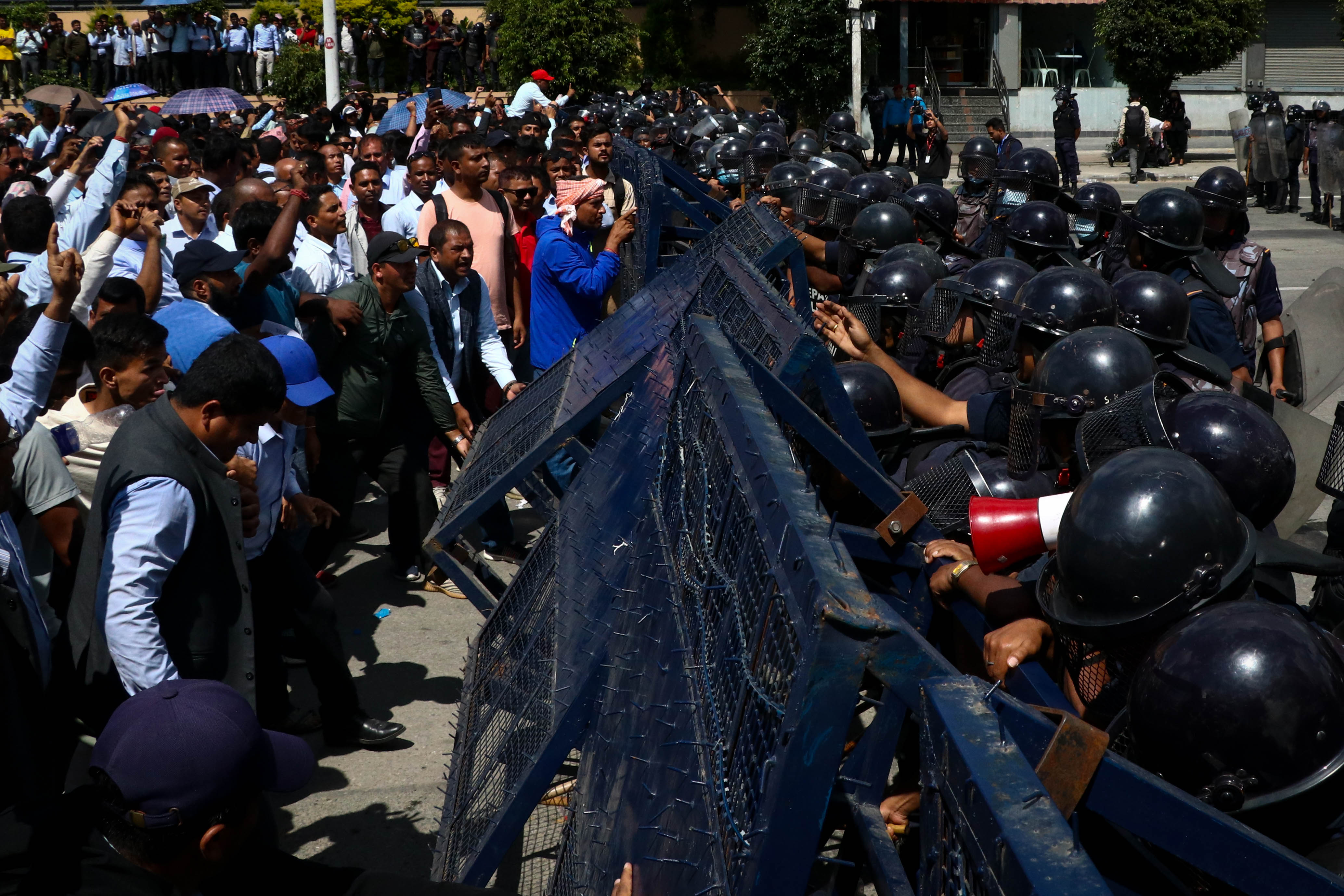















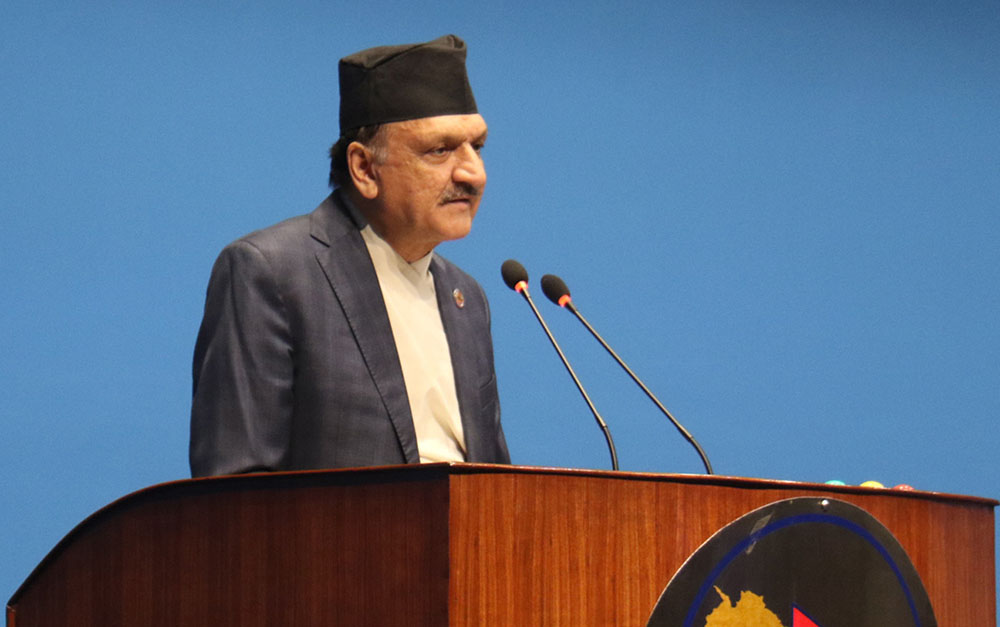
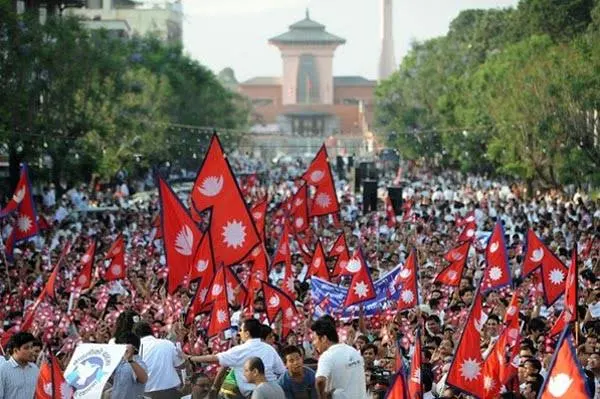
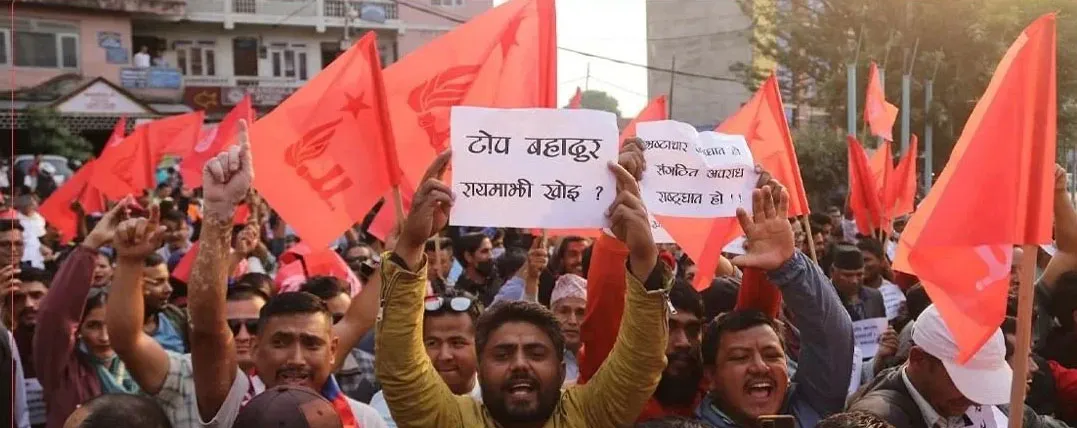
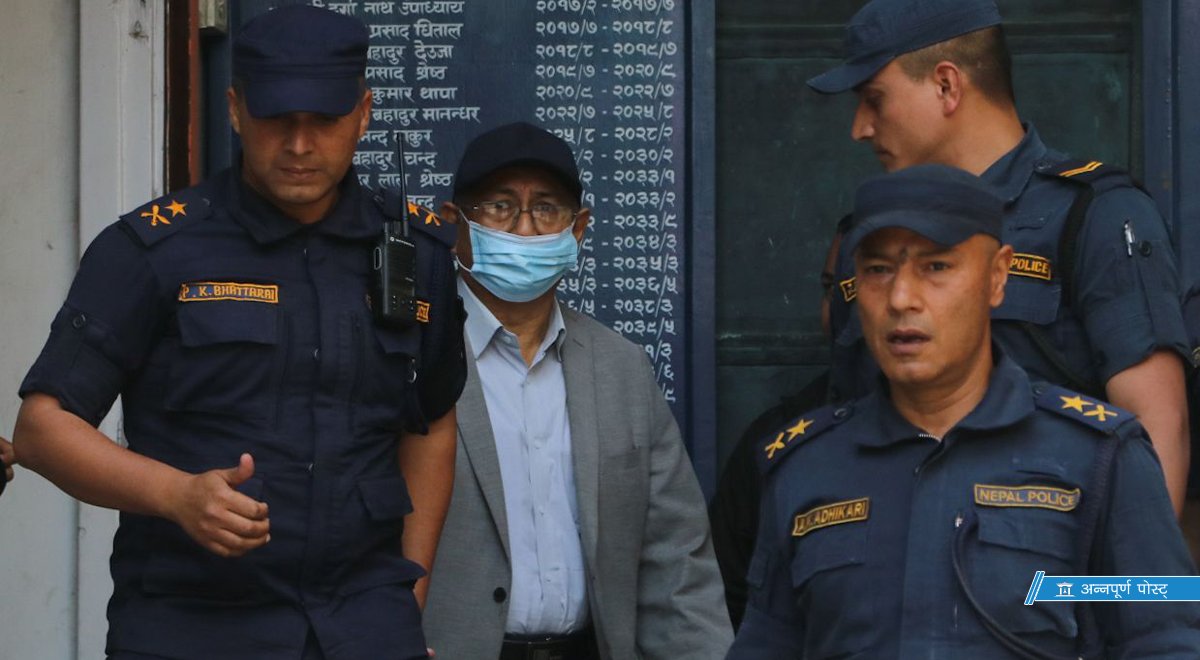












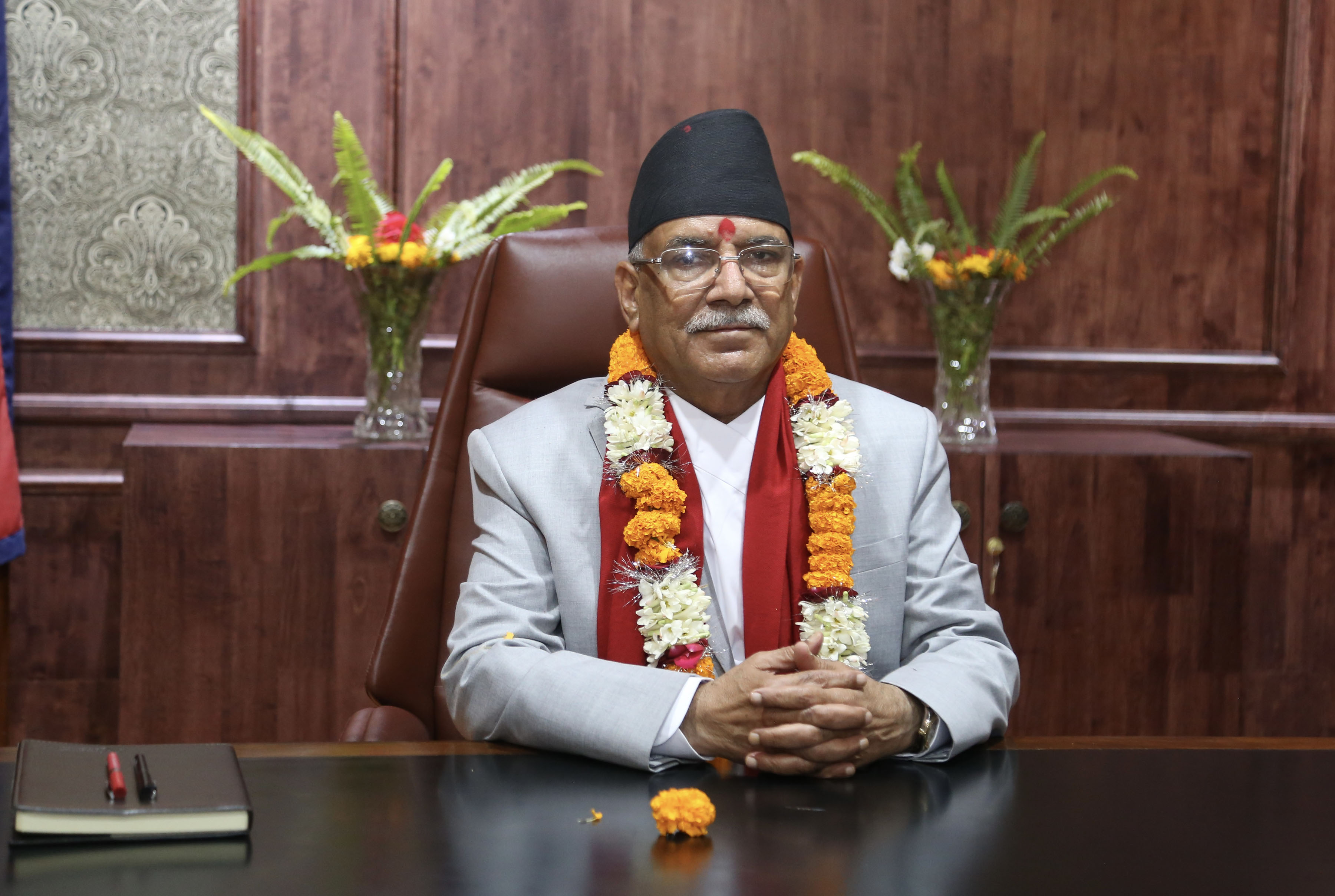













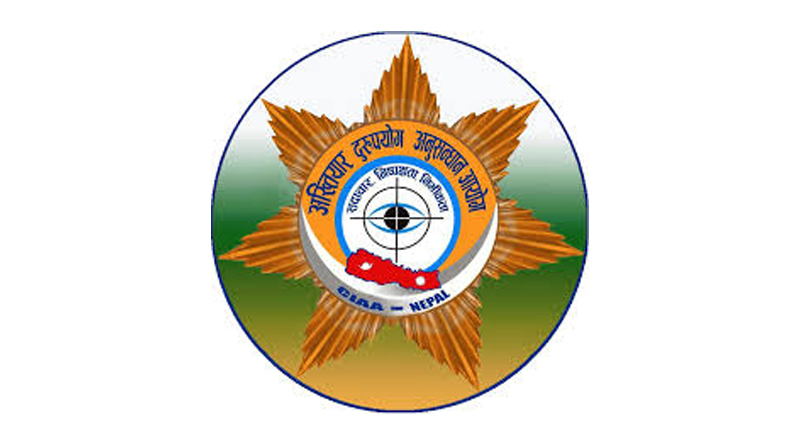

_20201022131432.jpg)








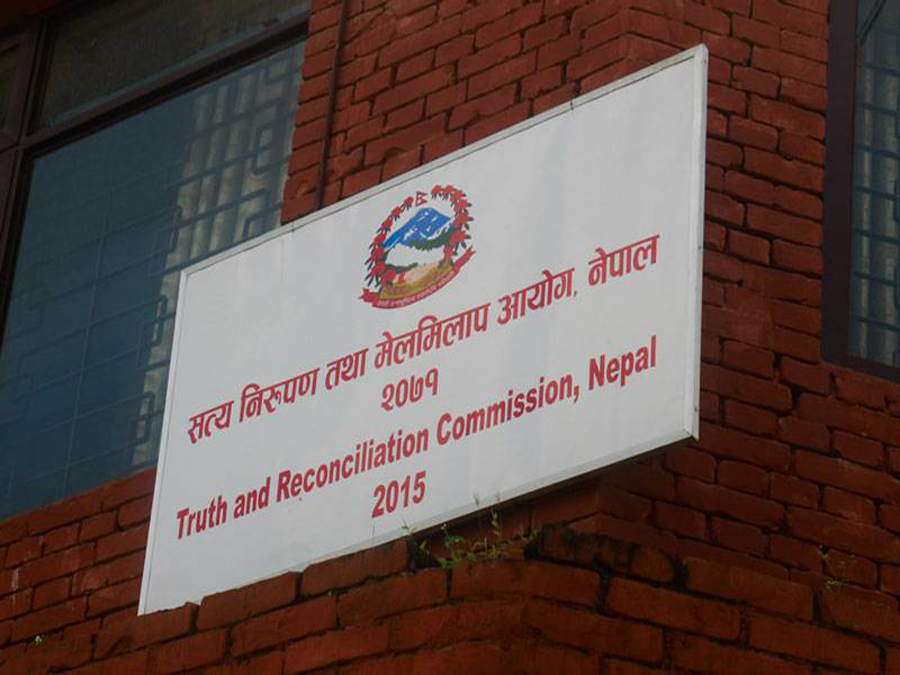





























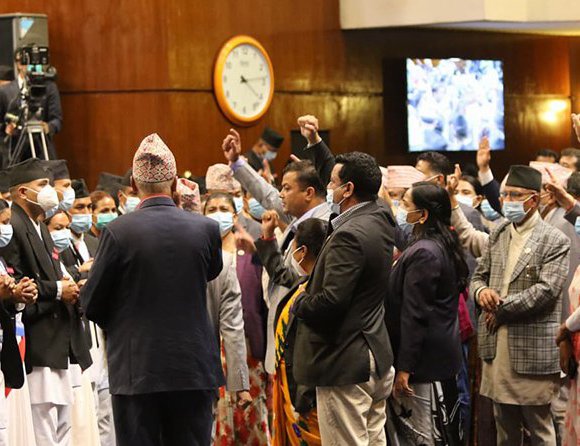

























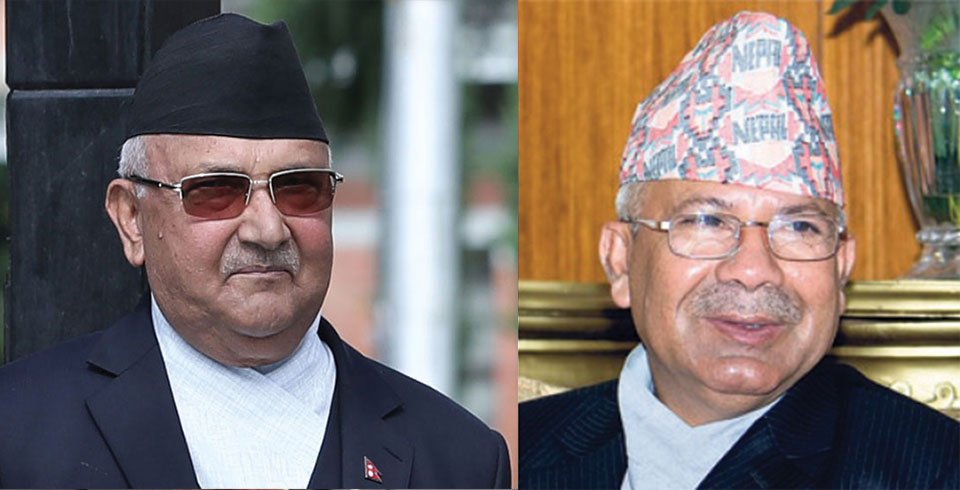













_20181220002902_20200228135058(1)_20210219190114.jpg)








































































































































